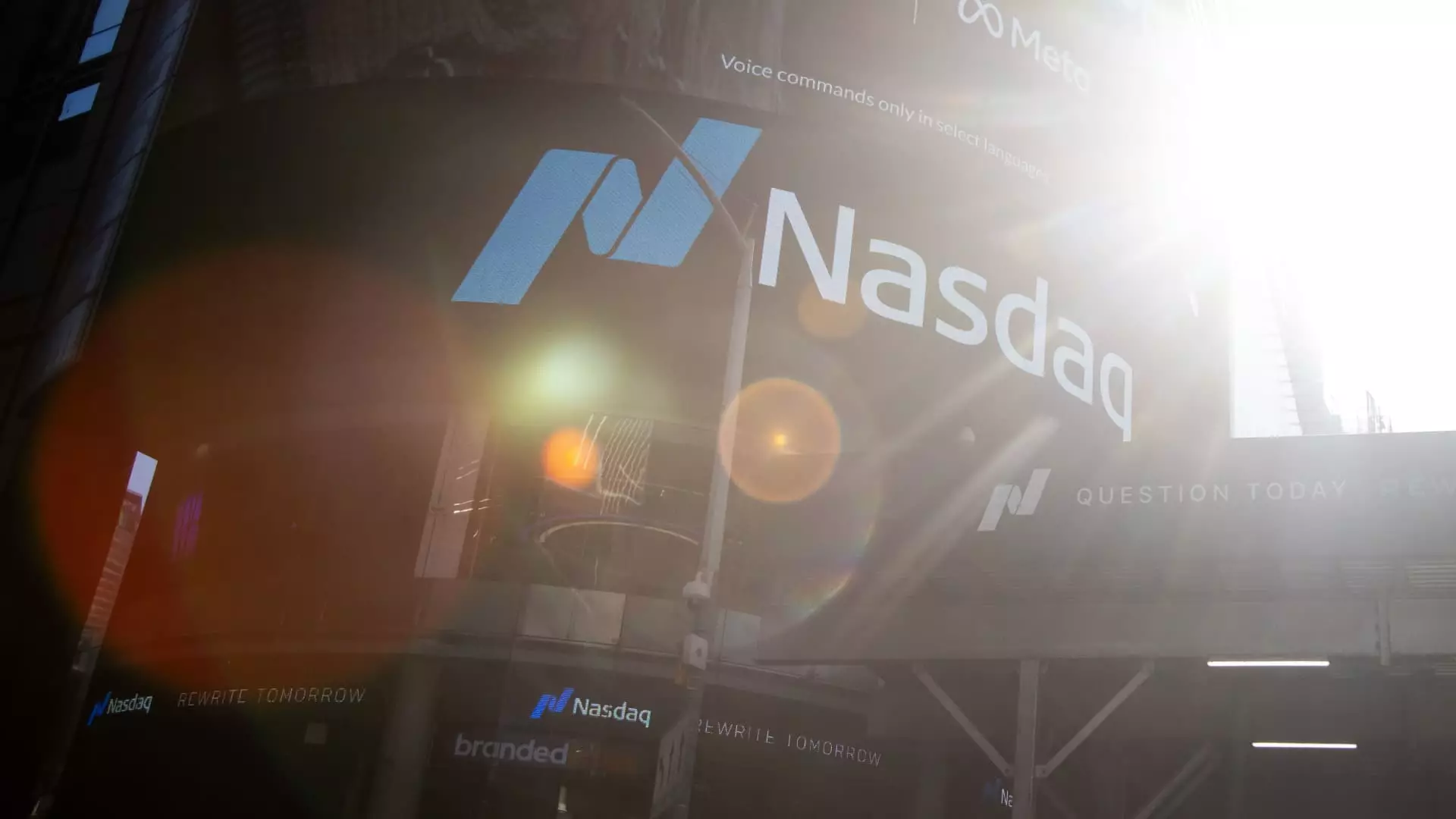Every weekday, financial enthusiasts digest updates from the CNBC Investing Club with Jim Cramer, marking pivotal moments in the stock market spectrum. As the trading day approaches its conclusion, key insights emerge, revealing a complex web of market rotation. Recent trends indicate that the Dow Jones Industrial Average outperformed its counterparts, poised for a significant milestone with a close above 44,000 points. Yet, beneath this apparent stability lies a notable shift—an evident post-election rotation manifesting in market behaviors. Particularly noteworthy is the decline of major tech stocks, including industry titans such as Apple, Amazon, Nvidia, Microsoft, and Meta Platforms. These names are no longer the go-to sectors for investment flows; rather, capital appears to be reallocating toward industries expected to thrive under the anticipated business-friendly policies of the incoming Trump administration.
The performance disparity among sectors paints a clear picture of investor sentiment. While technology stocks experienced a downturn, financials and industrials emerged as the frontrunners of market activity. Institutions like Morgan Stanley and Wells Fargo are on the verge of achieving record closing prices. An essential part of this narrative is the performance of Club holdings such as Eaton and Dover, with both enjoying burgeoning market support. Honeywell, too, is on track to reach a yearly high, reflecting investor confidence in its business strategies and adaptability. Furthermore, BlackRock’s advancement into all-time highs exemplifies the embrace of crypto investments amid President-elect Trump’s favorable remarks regarding digital currencies. The influx of funds into its bitcoin ETF signals strong investor interest in cryptocurrency, further documenting the shifts taking place in investment strategies.
As the S & P 500 hovers near historic highs, analysts are reassessing their projections. Oppenheimer recently upgraded its year-end target for the S & P 500 from 5,900 to 6,200, revising expectations amid unwavering earnings estimates. The prediction of sustained growth is bolstered by favorable seasonal trends typically observed towards the year’s close. However, the market is at a crossroads—concerns about overheating gains are surfacing, suggesting a cautious approach. Utilizing the S & P 500 Short Range Oscillator, a tool for identifying overbought conditions, traders are urged to remain vigilant. The recent surge places the market perilously close to overbought territory, prompting seasoned investors to consider strategic selling as a prudent response to forthcoming market corrections. Last week’s proactive trimming of positions in Honeywell, Morgan Stanley, and Wells Fargo highlights a calculated focus on maintaining an effective balance in their portfolios.
The week is also significant for earnings reports, with Home Depot preparing to disclose its quarterly results before the opening bell on Tuesday. Analysts predict a weak same-store sales performance, estimating a decline of 3.1%. This decline is expected to influence its adjusted earnings per share projections to around $3.64. Home Depot’s situation underscores the current real estate landscape, which hinges on fluctuating mortgage rates—below 6% is deemed critical for returning to growth in sales. Additionally, other companies gearing up for earnings announcements include Shopify, Tyson Foods, and AstraZeneca, illustrating the variety of sectors under observation during this pivotal reporting season. Disney, another cornerstone holding of the Club, is scheduled to release its earnings report before Thursday’s market opening.
Investing is an intricate dance of data, sentiment, and strategy. The insights shared in the CNBC Investing Club encapsulate this complexity, providing a crucial guide for everyday investors navigating the market’s ebbs and flows. Jim Cramer’s approach emphasizes not only the importance of timely information but also the discipline of managing positions to align with changing market conditions. With each trade alert sent to subscribers, there is a promise of vigilance and informed decision-making that can foster greater confidence in a turbulent financial landscape. As the market continues to adapt to the influence of policy changes and evolving investor preferences, remaining ahead of the curve will be paramount for strategic investing.

Leave a Reply